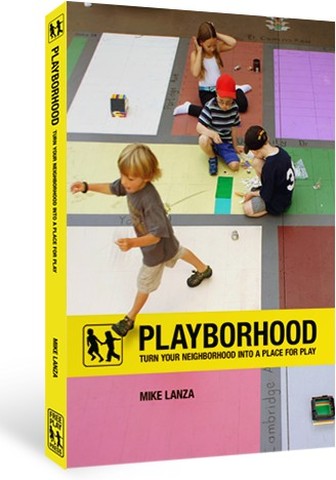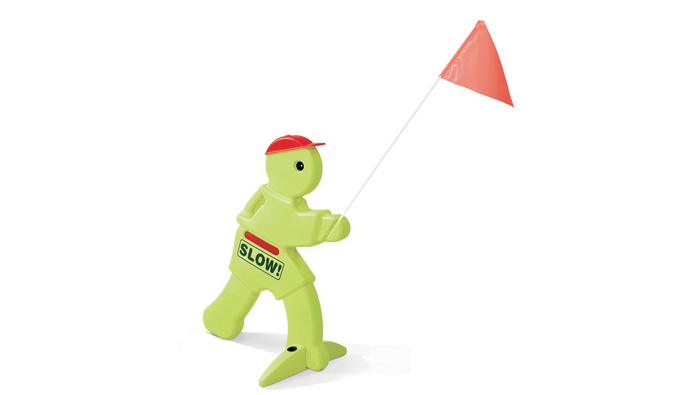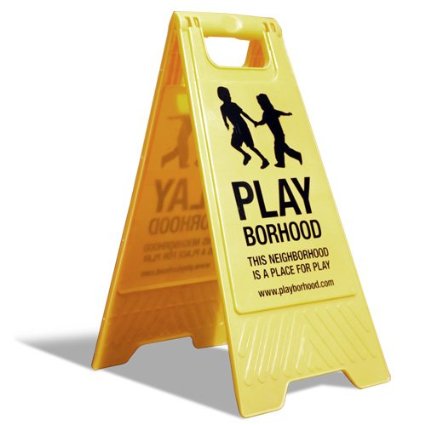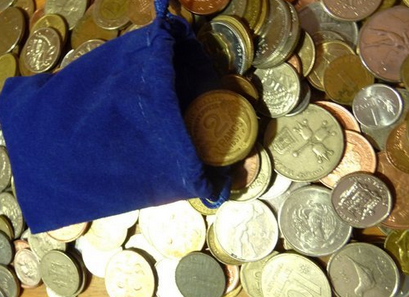|
Do kids in your neighborhood play outside every day? Or do they, like the average American child, spend up to eight hours per day in front of a screen? (In other words... they sleep, eat, go to school, and not much else.) Using some technology is great -- it can be fun, relaxing and even educational. But, when used excessively, it kills creativity and curiosity. It prevents kids from developing crucial social and emotional intelligence. It makes them bored... and it makes them boring.
Moreover, unsupervised outdoor play is one of the most important ways in which kids develop social and emotional skills, like resilience (something most kids with helicopter don't learn these days, which is one of the reasons that something like 15% of kids are being medicated for depression, and some 33% have reported feeling "too depressed to function"), self-regulation (a skill that is highly correlated with good grades, higher test scores, higher lifetime earning potential, lower incarceration rates, etc. etc. etc.), emotional intelligence, charisma, negotiation and leadership skills, autonomy and independence, and more.
Kids who don't spend their entire day in front of a screen, "being entertained" instead of learning to entertain themselves, are likely to spend most of their awake-but-not-in-school time participating in organized, adult-supervised activities. And while these activities may be fun for the child, constant adult supervision means kids have little control and autonomy in their lives. It means conflicts are prevented and/or solved by adult mediators. It means that rules are set, games are pre-packaged, and thinking stays inside the box.
Which can lead to the kind of instruction-following, hoop-jumping zombies described by William Dersiewicz in his sensational piece, Don't Send Your Kid to the Ivy League. (To which I say, Good schools don't turn kids into zombies. Bad parents do.) Add to screen time and organized playtime the bizarre, irrational, over-protective helicopter-parenting trend we've all been hearing about. Parents are being arrested for letting their kids walk alone to school or playgrounds near their homes. Some parents have tried letting their kids play outside... but the kids didn't like it. Because in today's world, the neighborhood is boring and lonely. There are literally no other kids playing outside. So what's a parent to do? Do what Mike Lanza, author of Playborhood: Turn Your Neighborhood Into a Place of Play, does.
He's an epic dad, who actively works to create a rich, interconnected play environment for his three sons and the kids in their neighborhood. Through careful thought and brainstorming, he's come up with some brilliant ideas: creating traffic signs to make the streets safer; providing resources, toys, times and opportunities for outdoor play; coordinating with neighborhood parents; etc. He's even building staircases and ladders over backyard fences so children could access each other's backyards without going into the street!
In short, he's one of the funnest, most playful and imaginative adults I've ever met.
To Mike, the neighborhood should be a magical place -- a place where kids can be safe and close to their parents, but still able to explore on their own, developing the interpersonal, cognitive and emotional skills they will need to be happy and successful adults. He believes that parents can work together to build safe, interconnected neighborhoods, and Playborhoods are possible anywhere.
Especially when parents make it a priority. In a recent interview, Mike mentioned some people have suggested that you can only create a Playborhood-like community if you have money. "Not true," he told me. "You see this furniture? We bought it all used. See how it doesn't have any legs? That's because one of the legs broke a few years ago. And rather than buy new furniture... I just took off the other three legs and set it on the floor. Nice cars and expensive furniture aren't important to us, because how do they help our kids? How do they help our kids learn, grow and be happy? The neighborhood is magical. I think free play is the greatest gift I can give my children. So that's our priority."
And, sure, toys can be expensive. But kids have wild imaginations, if you let them -- and they can learn the most from the most basic toys. As soon as you assign features and purpose to a toy, you limit what the children's imaginations can do with it.
The point being: the toys you buy are far less important than the effort you put into your Playborhood. The first thing you need to do is get your neighbors on board. Talk to them to come up with a set of rules and boundaries -- e.g., It's okay for neighborhood kids to play in my yard, but only from 3pm-6pm; I want kids to knock first and ask for permission to play so I know what's going on; I don't feel comfortable with my youngest using the rock wall; I have a pool in my yard, and don't want kids playing in it unsupervised; etc. If there are safety concerns, brainstorm good ways to address them. You're intelligent adults, right? So, for example, Mike's neighborhood is full of bright yellow traffic signs warning drivers to slow down; other Playborhood neighborhoods have actually managed to get roads shut down at certain hours, turning the whole community into a huge playground.
Coordinating with other parents is also important because, well... playing outside isn't as much fun if your child is the only one doing it. Outside can get lonely without anyone to play with. This is probably part of the reason so many kids prefer Facebook to real outdoor play -- young people have a strong desire to interact socially. And childhood is a crucial time for social development. After all, social skills are like language skills -- you're born able to learn anything, but you only learn it if you're exposed to it and you practice. If you don't learn a language by a certain point in your childhood, you will never speak that language fluently. Likewise, social skills can be learned at any time in life -- but if you wait too long, your child will always "speak" them with a bit of an accent.
Next, there's safety in numbers. Not that neighborhoods are dangerous -- because, statistically, they're safer than ever. Violent crime is down. Kidnappings are down. According to a recent New York Times post, The Case for Free-Range Parenting, Respondents were terrified by the idea of giving their kids only a fraction of the freedom they had enjoyed as kids. Many parents cited fear of abduction, even though crime rates have declined significantly. The most recent in-depth study found that, in 1999, only 115 children nationwide were victims of a “stereotypical kidnapping” by a stranger; the overwhelming majority were abducted by a family member. That same year, 2,931 children under 15 died as passengers in car accidents. Driving children around is statistically more dangerous than letting them roam freely.
Statistically, your fear is irrational. Even so, most parents feel more comfortable sending their kids out to play if they know their child's got a buddy with them -- so work with your neighbors to create your Playborhood.
Another tip for creating a Playborhood is having toys, BBQs and games in the front yard, rather than the backyard. Sure, Americans love their privacy. But if you spend more time in the front yard, both kids and parents can see what you're up to and join you -- whether they saw you from their own yard, on their way home, or out walking their dog. This is a good way for both you and your child to build better relationships and have more friends. (Did you know that one in four American adults say they have zero close friends? Kids aren't the only ones who are more depressed and lonely than ever.) It won't hurt if you get a little creative. Kids will take care of most this on their own -- but a little effort on your part can really facilitate their play. As mentioned in the slideshow (above), Mike spent a lot of time working on the "river" and the sand box in his yard. He told the parents in his neighborhood that they were welcome to use the sandbox whenever they wanted. And then! He ordered foreign currency and buried it -- making every trip to the sandbox a treasure hunt. (FYI, you can order your own foreign quarters on Amazon -- they're 50 for $10 or 100 for $19)
Also pictured above, Mike installed whiteboard fences, and provided resources and scaffolding for the kids to make impressive murals and art projects in his yard.
You may be thinking, "Good for him, but I'm not rich, so I can't afford that." You're wrong. While Mike has spent more money on his outdoor play areas than probably the average family does, that's because the Playborhood is a priority for him. He and his wife never buy new furniture -- they always buy used. They don't drive fancy cars, either. Because they would rather spend their money on something that brings their kids magic, joy and early learning experiences... than spend it on things. They've figured out that money does buy happiness... if you know how to spend it. In short, if you live in a neighborhood and you've got kids, I strongly recommend setting up your own version of a Playborhood. For more detailed instructions and inspiration, check out Mike Lanza's website or buy his book: Playborhood: Turn Your Neighborhood Into a Place of Play. Even better, buy a bundle, and pass them out to your neighbors, teachers and fellow parents.
Because, seriously, it is the best gift you could ever give your child.
So go have fun. Be silly! And remember: it takes a village to raise a child! Inspired? Please shared your questions, thoughts and ideas in the comments section, below.
2 Comments
Sara
3/23/2015 04:06:40 pm
Having considerable amounts of fun is something I work very hard to do. It very interesting reading that there is some academic reasoning behind it all. I am sharing this with the principle of the school I work at tomorrow. We take fun pretty seriously here . I love my job.
Reply
3/24/2015 09:18:14 am
Sounds like an awesome job - and an awesome school. In a world full of increasingly depressed, anxious and stressed-out kids, you are exactly what the world needs more of!
Reply
Leave a Reply. |
About the Author

Eva is a content specialist with a passion for play, travel... and a little bit of girl power. Read more >
Want to support The Happy Talent? CLICK HERE!
Or Find me on Patreon!
What's Popular on The Happy Talent:
Trending in Dating and Relationships:
What's Popular in Science: Playfulness and Leisure Skills:
Popular in Psychology and Social Skills:
Categories
All
|
































 RSS Feed
RSS Feed